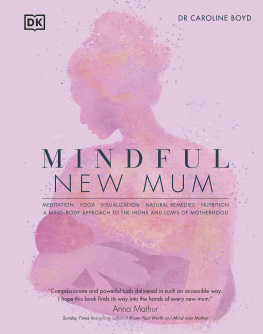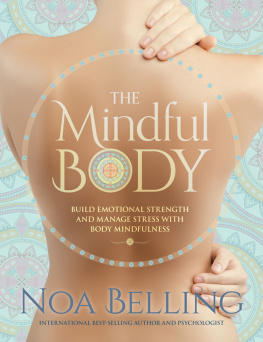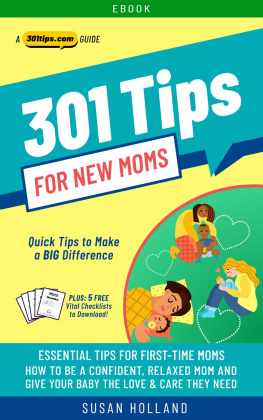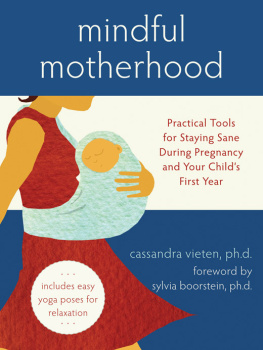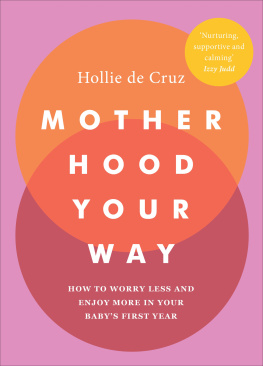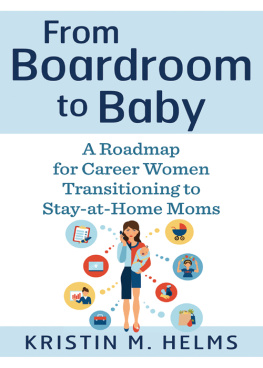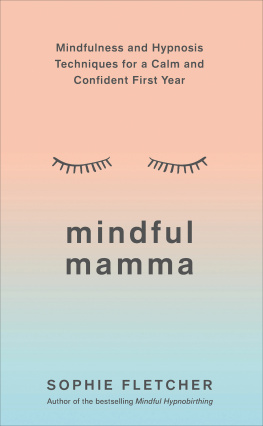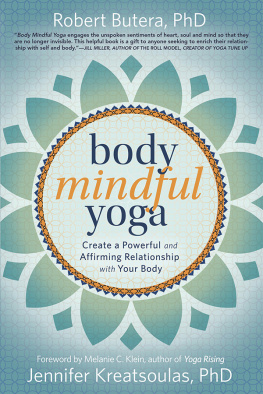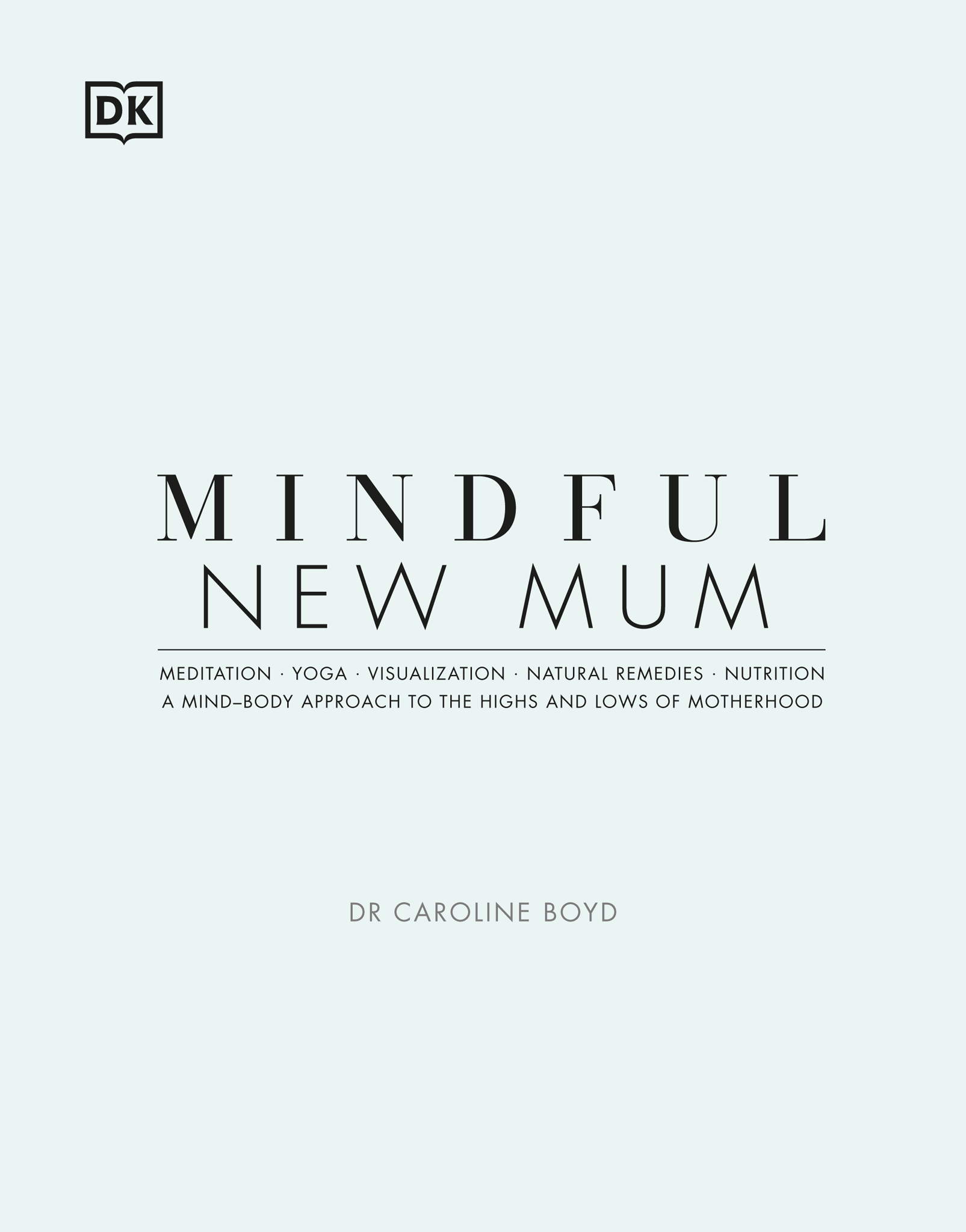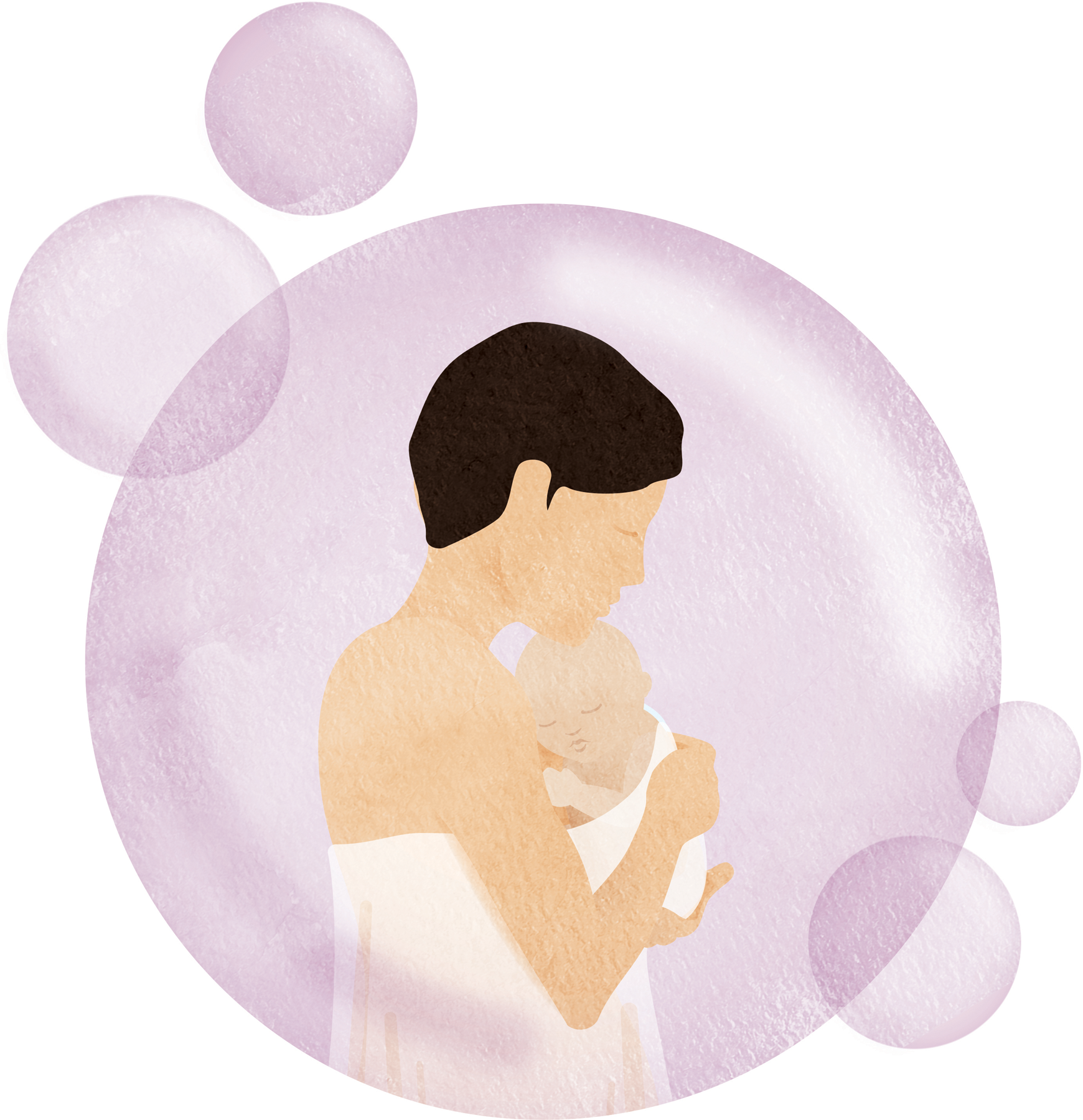CONTENTS
Contents
To my loves, Laurie,
Isla, and Reuben
g
How to use this eBook
Preferred application settings
For the best reading experience, the following application settings are recommended:
- Orientation: Portrait
- Color theme: White background
- Scrolling view: [OFF]
- Text alignment: Auto-justification [OFF](if the eBook reader has this feature)
- Auto-hyphenation: [OFF](if the eBook reader has this feature)
- Font style: Publisher default setting [ON](if the eBook reader has this feature)
- In Settings, change the font size to a size you are most comfortable with.
g
Introduction
Becoming a mum is life-changing. Mindful compassion teaches you to open your heart to the highs and lows of mothering enhancing everyday connections with yourself, your baby, and the world around you.
When I first became a mum, people told me: Just trust your instincts. I remember thinking, Okay, but how do I know what those instincts are? Gradually, I understood that settling into my new role was a process, as I learnt my babys unique cues and what kind of mum I wanted to be. The idea that women are born knowing innately how to mother is a fairy tale, belonging to the Supermum myth. This has us believe we must always be coping, in control, and loving our role. The idea of Supermum stems from the Western ideology of motherhood in a patriarchal system, a central theme of this book. Much research cited is based broadly on Caucasian, educated groups we need more diversity, amplifying more voices. I draw on some non-Western postpartum practices, yet recognize these have constraints, too.
The messy reality of motherhood teaches us that living up to Supermum is impossible. In my experience working clinically with families adjusting to parenthood, many women (and men) struggle, each in their own ways. My hope in writing this book is to help you feel seen and understood amid the kaleidoscope of emotions arising on this journey. When you have a baby, you can feel shaken up like a snow globe. Up into the air go your pre-baby identities, emotions, and relationships. As you adjust, there is a unique opportunity for growth as you re-evaluate old stories and patterns that no longer serve you.

Mindfulness allows you to shine a light on whats most helpful to you in any given moment. Instead of being bound up in your thoughts as truths, adopting an Observer position gives you power to step back and respond with compassion. Living mindfully helps you turn down the noise and focus on what really matters. Identifying your parenting values empowers you to make choices that fit for your family.
Parenting will inspire and test you. My take-home message for mums is that its essential to look after yourself. As girls were often not taught to attend to our own needs, yet this is vital for our wellbeing. Use the meditations, affirmations, visualizations, yoga, nutritional advice, and natural remedies that feel right for you nothing is prescriptive. Ive integrated ideas from my clinical practice, research, and experience as a parent. Staying curious and reflective is key to mothering. Its okay not to know all the answers. I hope this book encourages you to develop a kinder relationship with yourself, helping you find more head and heart space to become the mum you want to be.
g
MINDFUL PARENTING
The transition to motherhood is tender and transformative. Yet pressure to parent perfectly can make this adjustment difficult. Practising mindful compassion provides tools to ground you during this time allowing you to find calm, soothe your baby, and embrace being a new mum.
MINDFUL PARENTING | Contents
g
Introduction
Being a mindful mother
Mindfulness is simply choosing to pay attention to the present moment, without judgment, whether youre feeding peacefully or soothing your baby. It allows you to open your heart to the highs and lows of parenting.
Perhaps you have already experienced that moment when you find yourself alone for the first time with your new baby. You may have wondered: How have I been left in charge? Am I up to the job?. Parenting is one of the most challenging tasks youll ever do, yet theres no manual. Its messy, a marvel, a muddling through. Mindful parenting allows you to connect with your rich inner experience and be more fully present with your baby in the moment as it unfolds. Practising mindfulness allows you to find ways to ground yourself and stand, steady as an oak tree, while the storms of parenting blow around you.
No doubt your child will bring you moments of tenderness, wonder, and joy, as well as triggering strong feelings and testing your limits. Rather than adding yet another pressure, mindfulness helps you tune into the full range of feelings. Becoming more mindful allows you to notice difficult feelings as they arise rather than judge yourself for having them.
The roots of mindfulness lie in teachings of the Buddha, described by the Sanskrit word dharma meaning the way things are. Cultivating awareness means focusing attention inwards to your thoughts, emotions, and bodily sensations without resisting them or getting caught up in past worries or future fears.
Early motherhood can be stressful: acknowledging and accepting what is, including any difficult emotions, creates space to step back, allowing you to respond not react. To let go of believing theres a right way to parent, and that you should be doing things a certain way. To make wise choices for you and your baby, asking yourself in times of challenge: Whats most important here?.
Adopting a mindful approach
Using the will help you to flourish in your new role as a mother as you appreciate the values of patience, acceptance, trust, and letting go. You are likely to hold preconceived beliefs and hopes about becoming a mum, shaped by society and your own experiences. Perhaps you have a fantasy in your mind about how you will parent and how your baby will behave. You may feel crushed by expectations to parent perfectly. This is linked to the myth of Supermum, which has us believe mums should always be calm, coping, and in control. Acknowledging when you may be striving to be Supermum creates space to respond wisely, without feeling the need to control.
It can also be hard to keep up with the constant changes: some days you may feel youre doing well, youre coping, youre winning. On other days, you may feel so tired and full of self-doubt: if only you could just get it right. Self-critical thoughts often arise amid stress, as you negatively label your present moment experience. So, if you feel bad, you then judge yourself for even feeling that way. Learning to redirect your attention allows you to step back from external pressures and quieten the mental chatter of your inner critic, easing doubts and fears.

